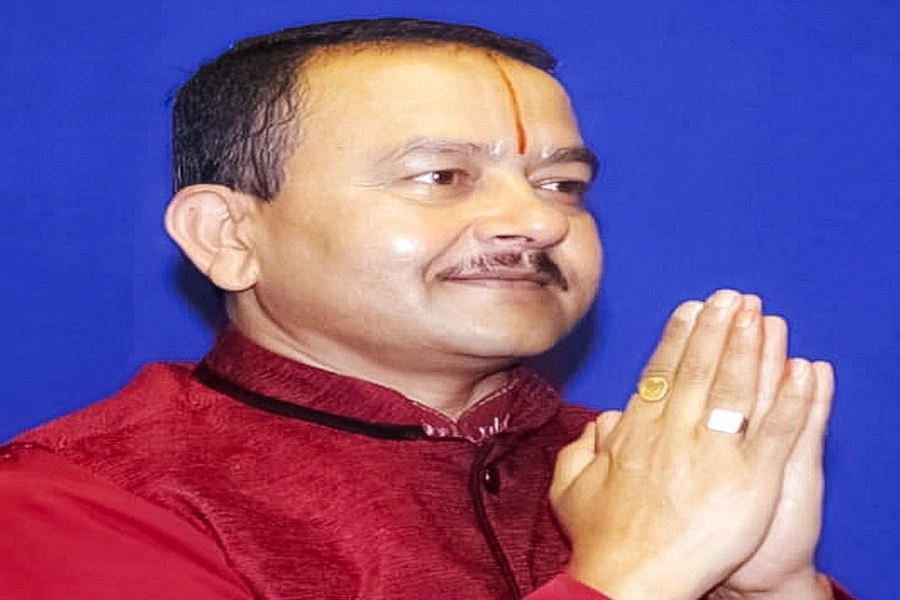In a display of blatant disregard for the rule of law, various Maoist factions and splinter groups, including the ruling CPN (Maoist Center), convened a joint press conference on Sunday to launch a venomous attack against the judiciary. It is unconscionable for anyone, particularly those who claim to uphold the rule of law, to harbor such bitterness towards the country's judicial system. Under the law, everyone is equal, regardless of their status or position, including the prime minister and other high-ranking officials. The latest constitution of the country makes it clear that implementing the rule of law must be impartial and fair to all citizens.
So, it is unacceptable that victims of the decade-long Maoist armed conflict have waited for 16 long years for justice from the state's transitional justice mechanism, and when they finally seek redress from the court, they are met with hostility from the accused! Therefore, the CPN (Maoist Center), currently leading the government, or any other political party, must refrain from engaging in such venomous attacks against the judiciary and justice-seekers. Their actions would be a grave affront to the principles of democracy and justice that the country upholds.
Judiciary should resolve its own disputes: Dahal

At the outset, it must be stated that the Maoist parties’ and groups' objection to the Supreme Court hearing petitions against Prime Minister and CPN (Maoist Center) Chairman Pushpa Kamal Dahal is highly objectionable. The court must provide access to justice to those who seek it, without exception. The Comprehensive Peace Agreement (CPA), which the Maoist rebels and the Nepali state agreed upon in 2006, prioritized transitional justice as a crucial agenda. The CPA does have provisions for transitional justice mechanisms such as the Truth and Reconciliation Commission (TRC) and the Commission of Investigation on Enforced Disappeared Persons (CIEDP) to provide justice and compensation to those who were victimized by the Maoist rebels, the state's security forces, or suffered serious human rights violations during the insurgency. But these mechanisms have been defunct, to say the least.
On the other hand, it’s clear that the Maoists have shown a total disregard for the issue of transitional justice, despite having ample opportunities to address it. They have been part of most of the governments formed to date, and even when they were not in power, they failed to take any meaningful steps towards providing justice to the victims of the violent conflict they initiated. The Maoists' inaction towards transitional justice for all these years is indefensible and a betrayal of the trust that the Nepali people have placed in them. The Maoist parties and groups must be held accountable for their failures and lack of action towards providing justice to the victims of the conflict.
Therefore, to stand against justice-seekers, the justices hearing the case against PM Dahal, and the entire judiciary, especially when a Maoist leader is leading the government, is a blatant disregard for the rule of law and tantamount to taking the law into one's own hands. During the armed insurgency, the people of Nepal were victimized, and those fighting it claimed that "you can't make an omelet without breaking the eggs." However, the victims waited patiently for years, hoping for justice from the TRC and CIEDP only to be left disappointed by the lack of progress.
The Maoists and other political parties' disregard for transitional justice suggests that they were only interested in delaying justice until everyone forgets about it, leaving it unresolved. In such a situation, it is inconceivable that the court should ignore the war victims' pleas for justice. In a country that upholds the rule of law, no one can be exempt from the legal process, even if they belong to the ruling party. If the rulers are beyond the law's long arm, it signals the beginning of authoritarianism. It is therefore crucial to ensure that justice prevails for the victims of the armed conflict, regardless of who is in power or what their political affiliations are.
So, the Maoist threats against justice-seekers, justices, and the court are nothing short of an attack on the very foundations of the rule of law. The victims of the armed insurgency have a right to seek justice, and the petitions filed against PM Dahal are a legitimate attempt to achieve that. By publicly acknowledging responsibility for 5,000 of the 17,000 deaths during the insurgency, PM Dahal has given grounds for the court to hear the petitions against him. Any effort to prevent this from happening must be condemned as a deliberate attempt to obstruct justice. The Maoists' credibility is sure to suffer further if they persist in such threats. In such a situation, PM Dahal is in fact expected to resign and facilitate a fair and impartial investigation into and a judicial review of the case against him. The rule of law must be upheld at all costs. Every crime should be punished according to its severity, with a punishment that fits the offense.



































